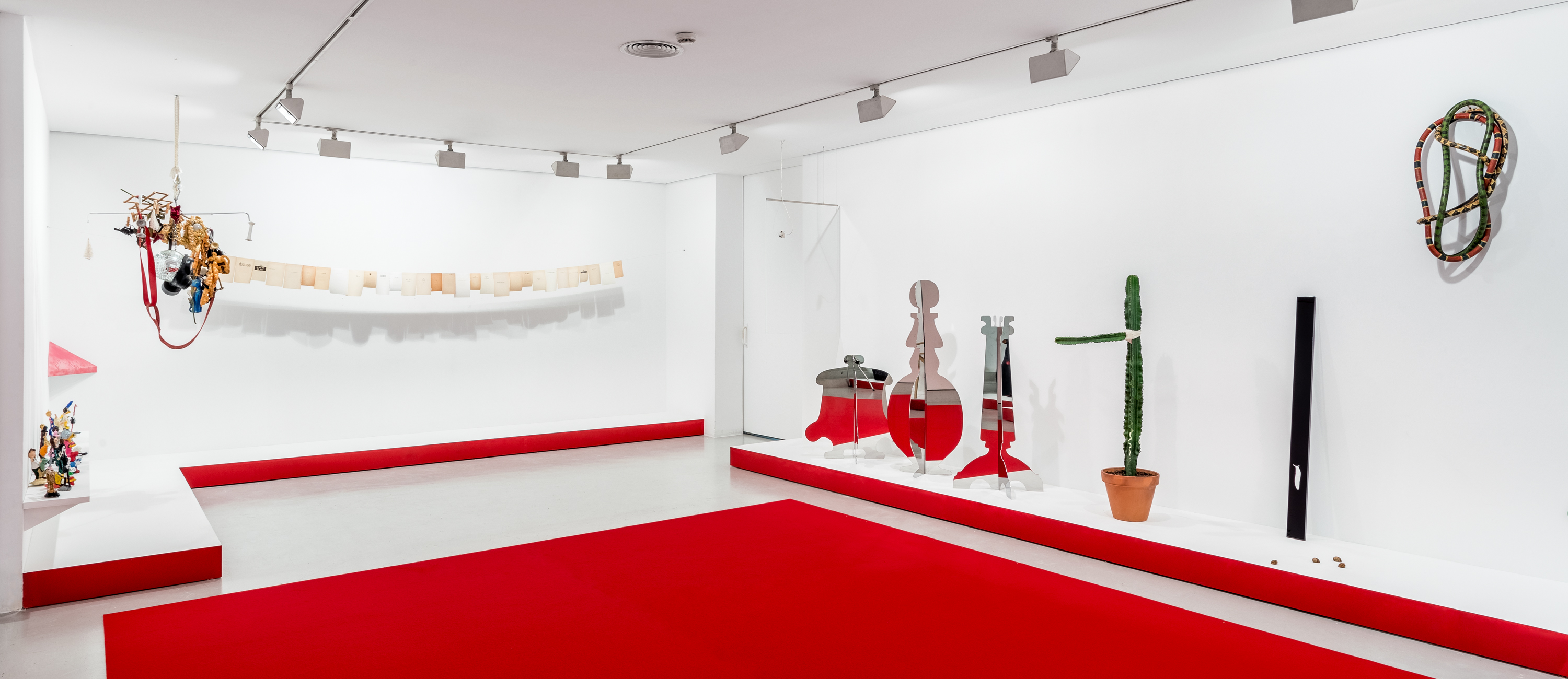

Form and Volume
Museum of Modern Art and Western Antiquities Section II, Department of Carving and Moderling: Form and Volume
Lisbon, Portugal
November 7 2019 - January 11, 2020
Link ->
Works by: Pablo Accinelli | Jennifer Allora and Guillermo Calzadilla | Juan Araujo | Kathryn Andrews | Marlon de Azambuja | Frank Benson | Matthias Bitzer | Jennifer Bornstein | Paloma Bosquê | Angela Bulloch | Carlos Bunga | Nicolás Consuegra | Luís Paulo Costa | Abraham Cruzvillegas | Alexandre da Cunha | Elena Damiani | N.Dash | Danilo Dueñas | Andres Eidelstein | Elmgreen & Dragset | Cerith Wyn Evans | Ângela Ferreira | Claire Fontaine | Al Freeman | Simon Fujiwara | Ryan Gander | Kendell Geers | Dominique Gonzalez-Foerster | Michelle Grabner | João Maria Gusmão + Pedro Paiva | Charles Harlan | Matthew Angelo Harrison | Matt Johnson | Germaine Kruip | Grant Levy-Lucero | Felipe García López | Shana Lutker | Kris Martin | Adriana Martínez | Soshiro Matsubara | Mazenett Quiroga | Jonathan Monk | Matt Mullican | Edgar Orlaineta | Woody De Othello | Zoë Paul | Matthew Ronay | Julião Sarmento | Indre Šerpytyte | Hugo Servanin | Michael E.Smith | Agathe Snow | Valeska Soares | Reena Spaulings | Mario García Torres | Clarissa Tossin | Andrés Felipe Uribe | João Pedro Vale & Nuno Alexandre Ferreira | Marianne Vitale | Lawrence Weiner | Claudia Wieser
Curated by Jens Hoffmann
Cristina Guerra Contemporary Art is pleased to announce Department of Carving and Modeling Section II: Form and Volume, an exhibition dedicated to contemporary sculpture curated by Jens Hoffmann. This is third time Hoffmann has brought to life the Museum of Modern Art and Western Antiquities, and for this new exhibition he has invited sixty international artists whose works outline recent developments in sculpture. The museum’s title is a reference to Marcel Broodthaers’s Museum of Modern Art, Department of Eagles (1968–72), and in the same spirit, the ambition is to create an imaginary museum. The design will follow that of the first two shows in the series, in that the works will be displayed like relics of a bygone time in a cultural history museum. This show concludes the project, which began twelve years ago. Although the concept embraces the idea that other sections and departments of the museum exist in our imagination, or in places somehow not accessible to us. The first exhibition of the Museum of Modern Art and Western Antiquities was dedicated to figurative and abstract painting and titled Department of Pigments on Surface Section II: Very Abstract and Hyper Figurative (Thomas Dane Gallery, London, 2007). It deliberately mimicked a cultural history museum through its old-fashioned atmosphere, as manifested in the architecture, lighting, wall texts, extended object labels, and other museological tropes. The second exhibition, Department of Light Recording Section IV: Lens Drawings (Marian Goodman Gallery, Paris, 2013), focused on recent work by contemporary photographers. The photographs were presented together with various vitrines containing historically important cameras as well as a selection of various types of photo paper from throughout the twentieth century. Concluding the trilogy is the Department of Carving and Modeling Section II: Form and Volume, focusing on contemporary sculpture. The exhibition presents a wide variety of sculptures, from riffs on readymades, to work inspired by historical figurative or minimalist sculpture, to highly idiosyncratic ceramic objects with bright colors. It will also include prints, paintings, rubbings, text, and other kinds of works that are generally not considered sculpture but here comment or expand the definition. The display presents the diversity of contemporary sculpture, acknowledges the contributions the featured sculptors have made to ongoing discourses of art, and probes the question of what it even means to be “sculptural.” These days, when traditional artistic mediums are being pushed to the margins of art making in favor of digital art, virtual reality, and animation (and when sculptures, when they are created, are often fabricated using sophisticated technical processes such as 3D printing rather than handmade), Department of Carving and Modeling Section II: Form and Volume encourages sculpture to take a self-reflective look at itself by presenting the works as artifacts from a distant era or a decidedly different cultural context.